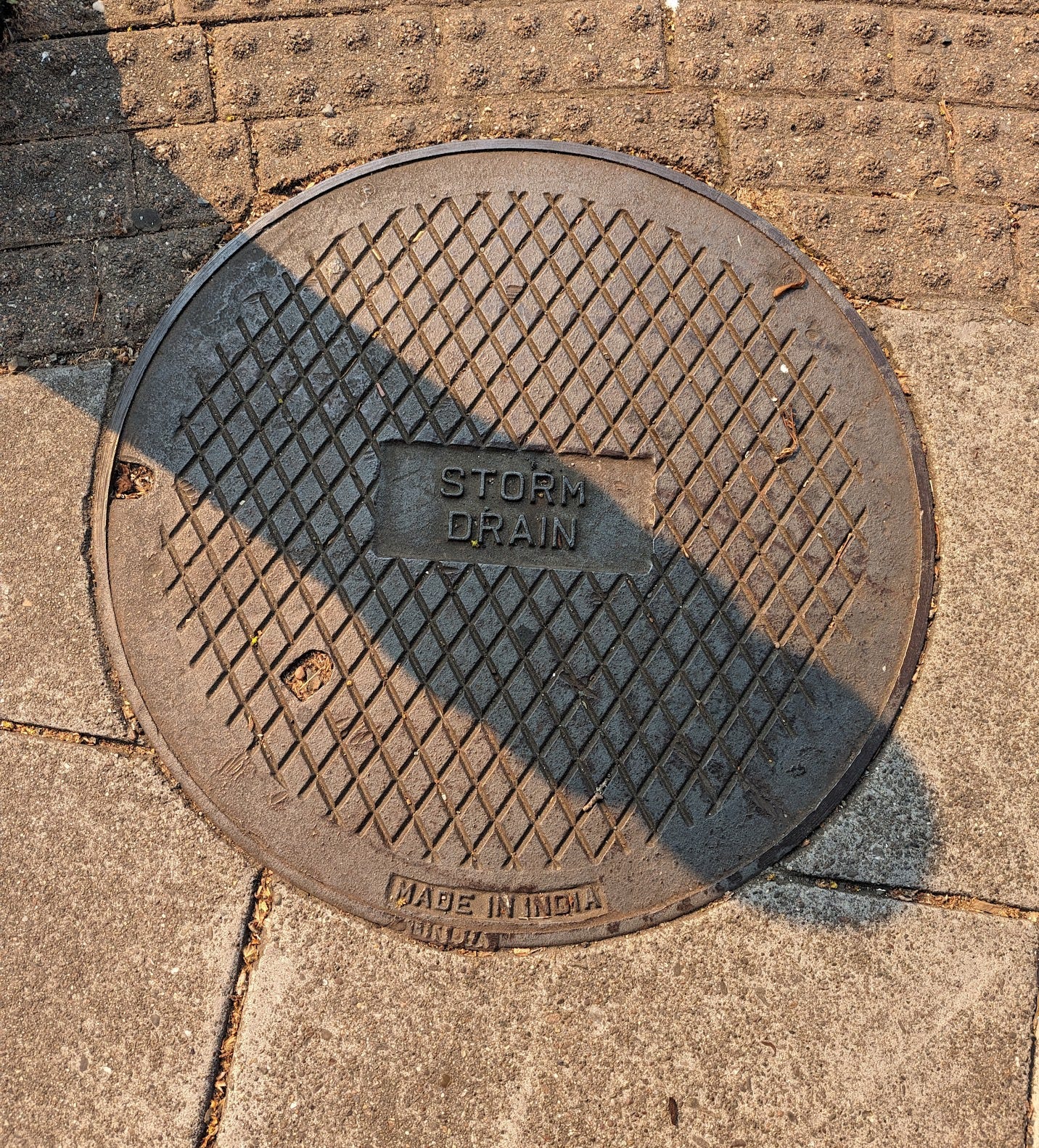Thank you to the readers who bought me (virtual) coffees! I am so (virtually) wired now. If you too would like to contribute to the (virtual) caffeination fund, here once again is the Buy Me a Coffee link.
Yesterday was a national holiday in these United States — Interdependence Day, as a pal of mine calls it — and it was also an unusually warm day in my area, where any daytime high above 80°F/26°C calls for an Extreme Heat Advisory. I’ve yielded to torpor and temporarily shelved my plan for a longer researched piece. Instead, here’s some cool eye candy.
Patagonia, the outdoor-gear manufacturer and good global citizen, has been using “Fashion Is None of Our Business” as its tagline for at least a couple of months. But this dramatic sign on the exterior of the San Francisco store was my first spotting of it in the wild. I love a tagline that cuts two ways.
Yes, the owners’ last name is Grabham, and “G” is their brand (G Design, G Family Construction). But seriously: Did no one look at “G-Landscape” and see “Glandscape” and then immediately think “Ewwww”? Thanks to reader Diane Fischler for sending me the evidence.
Builders Booksource (no apostrophe), on Berkeley’s Fourth Street, always stops me in my tracks with its hand-chalked sidewalk signs. This one had two arrows, one captioned “This way Independent BOOKSTORE” and the other “That way no books1. You choose your destiny.” Well, when you put it that way . . .
Because I’m a contributor to Strong Language, the sweary blog about swearing, and because I’m always interested in new ways to say “fuck,” I made a beeline for this window sign at The Melt on First and Market in San Francisco. “Artificial ingredients can go fake” — hold on now — “themselv.” And no, there was no remnant of an erased -es. Is this a new pronoun? And also: What the fake?
Until I saw this bus-stop sign in San Francisco I hadn’t known that the for-profit “educational organization” Udacity was now a part of Accenture, “the US multinational professional services corporation headquartered in Dublin for tax reasons,” per Wikipedia. (The acquisition is recent: March 2024.) I smiled in a pained sort of way over that promised two-month “transformation” into an AI product manager, and also over the asterisk after “$257K.” YMMV (Your Money May Vary).
This Santa Rosa (California) storm-drain cover isn’t much to look at — certainly not compared to some of the beauties in places like Berlin, Seattle, and Kurashiki City. What caught my attention was “Made in India.” Are other cities outsourcing street infrastructure along with call centers?
During my day trip to Santa Rosa I looked up from the street long enough to visit Whistlestop Antiques on Railroad Square. It’s a huge shop with many vendors, and it’s a good thing I arrived just before closing time because I would otherwise have done some serious damage. Bakelite jewelry! Embroidered handkerchiefs! And I lingered longingly over Paul Wing’s Spelling Bee, “the game of zest and test for two to twenty players.” (Only $5! I should have bought it.) The scholarly-looking gent is the selfsame Paul Reuben Wing, a newspaper and radio reporter who created the Spelling Bee program for the NBC-Red network in 1937. The board game was produced the following year. See more photos of the game.
Whistlestop Antiques also carried the 1943 edition of How Book of Cubbing, published by the Boy Scouts of America (now Scouting America).
There is so much to love about, and to be bemused by, this cover. The giant question mark. The lack of a definite article. That odd use of “how” instead of, say, “how-to.” The book’s audience was Cubmasters, not the boys they supervised; the first edition was published in 1938. Cub Scouts — originally called Wolf Cubs — were surprisingly controversial: the Boy Scouts’ first chief executive opposed the program, fearing it would draw attention away from the main organization, for 12- to 17-year-old boys. More photos of How Book of Cubbing on eBay.
A final Santa Rosa tip: Just around the corner from Whistlestop Antiques is Marla Bakery, which makes excellent breads and which hosts Fried Chicken Frydays and occasional special dinners. (I went to a special dinner inspired by Sammy’s Roumanian in New York.) There is no Marla at Marla; the name is an acronym “composed of the first letters from the names of our family members who taught us to cook and bake.”
Hey, Substack, how about giving us an underline option?












Cast iron, and ductile iron, "manhole" covers, now also called maintenence hole covers, have been produced in India cheaply for many years and are common in the U S. Also common are metal drain covers made in India. Mexico is another source for metallic infrastructure. Sadly the artistry of such objects has dropped off steeply over the last century or so.
The manhole. The erect penis shadow escaped your eye?